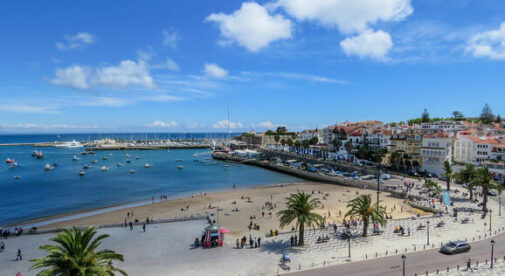Expat favorite Portugal has been busy on the legislative front in 2023.
Back in February, the Portuguese Prime Minister announced his intention to abolish its famous residential Golden Visa. This gave foreigners long-term residency in exchange for a residential property investment of at least €250,000.
After extensive political back and forth, a bill to that effect has finally been approved, and the residential option is officially ended.
It’s still possible to get a Portuguese Golden Visa, but it will cost a lot more.
One way is to donate €250,000 to artistic or cultural institutions. Unlike the residential option, however, you don’t get a property and the associated rental yields along with your visa.
The remaining options all involve a minimum of €500,000, either donated for scientific research or invested in business or approved investment funds.
These changes come in response to widespread unhappiness amongst native Portuguese at the state of the domestic housing market. From 2015 to 2021, average rents rose by 112%. Over the same period, house prices shot up by 157%. But the capital, Lisbon, was hit hardest, with housing costs increasing by over 300%.
The residential Golden Visa was designed to help rescue the Portuguese housing market in the aftermath of the global financial crisis of 2008. Although some people deny the connection, the strategy clearly succeeded—too well, according to locals.
Portugal still needs foreign money, however. That’s why the country is encouraging potential migrants to take advantage of its digital nomad and independent means visas, which also give long-term residency rights.
Instead of capital investments in property or business, these visas require holders to bring in active or passive income from abroad. Employment inside Portugal is forbidden.
Part of the attraction of these income-based visas is Portugal’s Non-Habitual Resident (NHR) tax regime. This exempts foreign income from Portuguese tax for 10 years. Passive income, such as pension payments, is taxed at a concessionary rate of 10%. Portuguese source income is taxed at a flat rate of 20%.
By comparison, Portuguese citizens are taxed at rates up to 48%.
Now it looks as if the NHR is also under the chopping block. Prime Minister Antonio Costa announced on Tuesday that the government will end the NHR regime for new residents in 2024. It will remain in place for those who have already qualified.
Costa told CNN Portugal that “To maintain this measure for the future is to prolong a measure of fiscal injustice that is not justified, in addition to being a biased way of continuing to inflate the housing market.”
Portuguese real estate interests have long protested that the residential Golden Visa is not to blame for rising housing costs. Since 2012, 12,500 applicants got property-based Golden Visas. But over the same period, more than 500,000 foreigners have moved to Portugal. Most of them come from elsewhere in the European Union.
The government clearly believes the influx of Europeans looking to take advantage of the NHR is behind the housing affordability crisis. Indeed, one of Portugal’s biggest property developers says that 65% of their clients are foreign residents looking to take advantage of the NHR.
The big question, of course, is what will replace the NHR. If the experience of the residential golden visa is any guide, it’s likely that the government will replace it with another concessionary program, albeit not as attractive.
None of this means, however, that U.S. persons who take advantage of the remaining visa categories will end up paying more in tax than under the NHR. That’s because Portugal and the U.S. have a tax treaty that prevents double taxation and gives a U.S. income tax credit for foreign taxes paid.
I’ll be monitoring the situation carefully in my new Global Citizen service, where I’ll be posting regular updates.
[second_passport_signup]
Related Articles
Portugal’s Loss Is Greece’s Golden Visa Gain
Portugal Ends Golden Visa Program: What It Means For You
Seven Places to Retire in Portugal for Under $30,000 per Year
[post_takeover]
[lytics_best_articles_collection]

